EPIC Missions
Both team- and individually-oriented (Team Missions & Solo Missions), challenge-based projects worth 6 and 3 ECTS respectively
EPIC Missions: Academic Year 2023/24
We encourage students to apply for one of our challenge-based EPIC Team Missions (6 ECTS), which involve teaming up with students from across the continent to tackle a real-world challenge on behalf of an external stakeholder. In total, EPICUR will offer 8 EPIC Team Missions.
Funding for travel and accommodation is anticipated.
What are EPIC Missions?
- EPIC Missions are group projects in which students from across Europe come together to tackle real-world challenges on behalf of real-world stakeholders with the academic support of their mission guides. EPIC Missions are blended mobility opportunities that start with an in-person kick-off event, followed by online collaboration throughout the mission period.
The missions consist of two complementary parts that can be taken independently: - Team Mission
- August until January
- 6 ECTS
- Solo Mission
- March to June
- 3 ECTS
EPIC Missions 2023/24
The 2023/24 EPIC Missions timeline:
- Mission Kick-off: at EPICUR Partner Adam Mickiewicz University in Poznan, Poland from Monday, August 28 through Friday, September 1
- Mission in Progress: online collaboration between stakeholders, mission guides, and student teams between September and December
- Mission Milestone: final presentation will take place in January;
- (optional) Mission Capstone: event in August 2024 (invitations to participants to present their experiences to the next Mission crews).
Mission 1 (Center for Promotion and Development of Civil Initiatives, Poznan): Developing Cooperation Between NGOs and Universities
Theme:
Sustainable Transformation & European Values
Sustainable Transformation & European Values
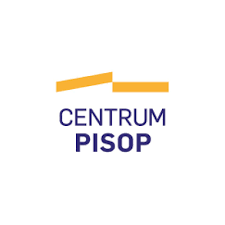
About the stakeholder
The PISOP Center Association was established in the year 2000. It is a Non-governmental organization (NGO) guided by the principles of honesty and partnership. The participants believe in the importance and strength of citizens' initiatives, NGOs and social enterprises. The PISOP Center:
- supports NGOs and social enterprises at every stage of their work by offering advice, information, training and innovative solutions.
- cooperates with authorities, companies and universities.
- is focused on 3 areas
- EMPOWERING CIVIC ENGAGEMENT Since 2000 The PISOP Center supports the development of local communities, encouraging citizens to create NGOs and implementing actions to tackle social issues and meet social needs. We search for leaders and then supports them in building their team, fundraising and working effectively. We encourage neighbourhood initiatives as well as local partnerships and encourages volunteering. We help in setting up opinion-making bodies for local lawmaking, e.g. senior councils, youth councils and public benefit councils. We award microgrants for local initiatives.
- DEVELOPING SOCIAL ENTREPRENEURSHIP Since 2005 we help with creating social enterprises, and suport their development by advising in the following aspects: building local partnerships, management, law, finance, accounting, marketing, human resources, and sustainability on the market. We promote social entrepreneurship by including it in public policies and company strate-gies. We take part in the discussion on volunteering and the work of university students in NGOs and help individuals to find jobs in the civic sector.
- PROMOTING COOPERATION We cooperate with local, regional and national public administration bodies for creating laws related to civic engagement, commissioning public tasks and their implementation, evaluation as well as creating spaces for social activity.
About the challenge
Close cooperation between non-governmental organizations and universities, including e.g. exchange of information and experience, planning and creation of projects, material assistance supports the development of the third sector. We want to support and develop this cooperation in our region Wielkopolska. Our experience shows that currently cooperation is very low.
Mission 2 (Key4Tomorrow, Poznan): New Methods of Promoting Intercultural Dialogue
Theme:
Sustainable Transformation & European Values
Sustainable Transformation & European Values

About the stakeholder
Key4Tomorrow (https://www.key4tomorrow.pl/) is an NGO active in Poznań area dealing with local activism, intercultural dialogue, sustainability
About the challenge
To engage students in promoting the richness of intercultural diversity in mobile formats. What new formats would be interesting for them, what target groups would they like to adress - kids, seniors, peers at universities ? What is the incentive to participate in such actions?
Mission 3 (WeTell GmbH, Freiburg): Bringing Sustainability and Diversity Together
Theme:
Sustainable Transformation & European Values
Sustainable Transformation & European Values
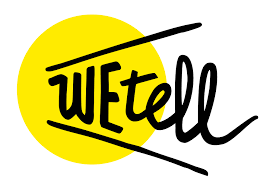
About the stakeholder
WEtell is a mobile telecommunications provider with focus on climate protection, data protection, fairness and transparency, thereby setting new standards in the industry. The company was founded at Freiburg im Breisgau in 2019 by Alma Spribille, Andreas Schmucker and Nico Tucher with the aim of promoting a value-driven economy.
WEtell is part of the Economy for the Common Good (https://www.ecogood.org/) and a steward-owned company (https://purpose-economy.org/en/). For more information see: https://www.wetell.de/ (German only)
About the challenge
WEtell is a company that focuses on sustainability and wants to foster sustainable transformation in the economy. But our experiences show that we are moving only within a certain sphere of society, generally consisting of white, middle class people with academical background.
Our challenge is composed of two parts:
- 1. Internal: How can we bring more diversity into our team?
- 2. External: How can we reach a more diversified audience with our sustianable services? Diversity here can mean different dimensions such as gender (identity), ethnicity, age, physical abilities, socioeconomic background and so on.
Useful expertise could be in the fields of: Diversity, intersectionality, communication strategies, marekting, HR, recruiting. But we also welcome people without expertise in these fields as long as they are interested in the subject and have a feeling for the needs of or belong to one of the aforementioned dimensions of diversity.
Mission 4 (Danish Cancer Society, Odense): Public Health - Smoking and Cancer Prevention
Theme:
Public Health
Public Health
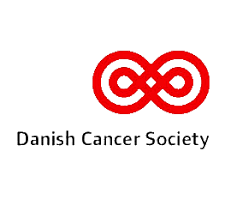
About the stakeholder
The Danish Cancer Society has more than 400,000 members - and almost 45,000 volunteers doing what corresponds to around 870 full-time jobs. With around 690 full-time employees, the Danish Cancer Society therefore has more volunteers than employees. We are a democratic membership organisation, whose course is charted by the volunteers and members. The volunteers represent the highest authority of the Danish Cancer Society. They elect the president, set the rules and regulations of the society and identify our main focus areas. Our vision A life without cancer Our mission Increasing cancer survival rates, reducing the number of cancer cases, improving life with cancer Main purpose Research, prevention, patient support https://www.cancer.dk/international/about-the-danish-cancer-society . The contact for this challenge is a voluntary board member in the local community of Odense.
About the challenge
How can we in Denmark prevent young people from starting to smoke and by this prevent cancer later in life?
We have specially an issue with chewing tobacco and e-cigarettes being very addictive and having a high impact on health due to the high nicotine level and the illusion of not being dangerous due to the different flavors. Indeed, e-cigarettes are forbidden in DK but widely spread.
Mission 5 (SINGA, Strasbourg): Creating a Network of Citizens to Include Newcomers to the City
Theme:
European Values
European Values
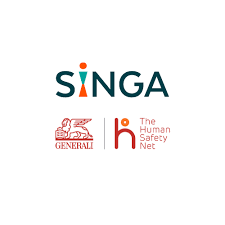
About the stakeholder
SINGA is a global movement that creates open societies, for everyone, regardless of their background, to realize their full potential. Since 2012, SINGA has been creating events, tools, and new spaces to encourage newcomers and locals to find synergies, learn from each other, and build a better future together through: A 50,000 member global community that brings together refugees, migrants, and locals around shared passions, skills, and projects. A network of local incubators in 18 cities in 7 countries that work with over 1,000 entrepreneurs to develop over 300 successful inclusion projects. A virtuous ecosystem that brings together community, leaders and institutions to reinvent inclusion and the future of migration. Since 2022, SINGA Strasbourg has been working towards social innovation by and for migration. International cooperation is at the core of the activities with the aim of making the local economy more inclusive, which is why SINGA Strasbourg is building a network of entrepreneurship and asylum ecosystem partners based in the Greater East region and Baden-Württemberg. https://singafrance.com/strasbourg
About the challenge
SINGA Strasbourg is the starting point for a bi-national cooperation hub in favour of migration-led innovation for the future of the Upper Rhine region. The city of Strasbourg, with its strategic position next to the Rhine river, has been a dynamic crossroad for international commercial exchange for centuries. Today, it is also a true basin for citizen’s engagement in building a cohesive society regardless of geographical and cultural borders. Bringing entrepreneurship that is accessible to every inhabitant of the area, constitutes a real social empowerment action that addresses the creation of the jobs of tomorrow by workers themselves. Since the beginning of SINGA Strasbourg's activities in January 2022, we observe the many difficulties newcomers with migration background face to meet locals and develop their own professional activities. These barriers are mainly: low or absence of knowledge of the local language and social codes, lack of a professional network, and of opportunities due to biases based on origin, religion, race, or gender. How can SINGA Strasbourg create a network of citizens to participate in the inclusion of newcomers to the city?
Mission 6 (Das Diakonische Werk der Evangelischen Landeskirche in Baden, Karlsruhe): Harnessing the Power of Wearables and a Mobile App to Increase Health Management Engagement
Themes:
Public Health & European Values
Public Health & European Values
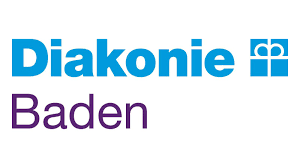
About the stakeholder
Diakonie is the social welfare organisation of Germany’s Protestant churches. Our mission is to practice charity in the model of Jesus Christ. We operate independently and across political parties. We respect the dignity and uniqueness of every human being and work to promote every individual’s right to independence and self-determination. Diakonie provides aid to people in need of care, to people with disabilities or illness, to children and families, to immigrants and their families, to those struggling with addiction, and to those otherwise disadvantaged. In addition, Diakonie advocates on behalf of the underprivileged in politics and society, leading discussions on the causes of poverty and social injustice. https://www.diakonie-baden.de/
About the challenge
In Europe, nearly 8 million individuals suffer from dementia, highlighting the challenges of an aging population with increasing life expectancies. Unfortunately, there is currently no cure for this disease, which mainly affects older adults. However, early intervention and treatment could positively influence or prevent around one-third of all dementia cases. To this end, the Diakonie is developing a mobile application that can identify and reduce risk factors associated with the development of dementia. After assessing the user's current health status, including pre-existing medical conditions, dietary habits, sleep habits and exercise routines, recommendations for changing habits (so-called lifestyle interventions) are given through the app.However, motivating elderly individuals to confront their health status and change their habits can be challenging. While some may already be highly engaged in their health, others may need additional motivation to use the app effectively. Furthermore, many older adults may not be familiar with mobile devices or wearables such as smartwatches, which are used to track their activities together with the app. Therefore, finding ways to engage more elderly individuals and encourage them to use the app is critical.
Mission 7 (EUCOR/Universität Basel, Basel): Evidence-based pathways towards more sustainable action
Theme:
European Values & Sustainable Transformation
European Values & Sustainable Transformation
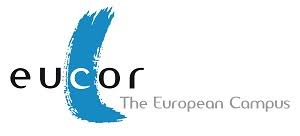
About the stakeholder
EUCOR– The European Campus (an EPICUR alliance associate partner) is an alliance of five universities based in the Upper Rhine region, namely the Universities of Basel, Freiburg, Haute-Alsace, Strasbourg and the Karlsruhe Institute of Technology (KIT).
Within the Eucor-alliance, Prof. Dr. Ulf Hahnel is a professor of psychology who focuses on “Sustainability and Behavior Change” at the University of Basel. His research focuses on how psychology can contribute to a better understanding of human judgment and decision-making shaping individual actions and “climate footprints” and how insights from this research can ultimately provide evidence-based solutions to promote sustainable actions around the world. He proposes the challenge below:
About the challenge
92% of citizens in Europe accept climate changes as a fact. Furthermore, 90% of Europeans agree that climate change is human-made. Regardless of that, the individual carbon footprint for people in Eurpoe averages 6.8 tons of CO2 per person and msut be reduced to 2,3 tons per person per year by 2030 if the Paris Agreement targets are to be met. Despite their awareness of climate change, people in Europe often do not choose the most climate-friendly behaviors - this is what indicators such as the carbon footprint and numerous other surveys clearly show us. The underlying phenomenon is called the 'intention-behavior gap'. Overcoming this gap is a key challenge for climate protection, since approximately 63% of the actions needed to limit global warming to below 2 degrees celsius require individual behavior changes.
In this EPIC mission, you are asked to develop a concept on how to overcome the “intention-behavior-gap”. Think of ways to make people adapt a more climate friendly behavior. How can the relevant information necessary to inform decision-making be made available quickly and easily accessible? How can framework conditions be created and incentives set that make it easy for people to opt for climate-friendly behavior in their everyday-lives? When developing your approach, take the specific cultural, geographical and social context in different European regions into account.
Mission 8 (EUCOR/Universität Basel, Basel): Reuse and Sharing of Objects on the Internet
Theme:
European Values & Future Intelligences
European Values & Future Intelligences

About the stakeholder
EUCOR– The European Campus (an EPICUR alliance associate partner) is an alliance of five universities based in the Upper Rhine region, namely the Universities of Basel, Freiburg, Haute-Alsace, Strasbourg and the Karlsruhe Institute of Technology (KIT).
Within the Eucor-alliance, Prof. Dr. Heiko Schuldt is a professor of Computer Science with a focus on “Databases and Information Systems” at the University of Basel. His research addresses Big Data in several facets, including the joint management of heterogeneous data in various formats, the search in large-scale multimedia (image and video) databases including novel augmented reality-based user interaction, and the processing of continuous sensor data streams.” He proposes the challenge below:
About the challenge
Sharing and reusing items on the Internet may seem technically simple, but the underlying constraints and rules are often unclear. Moreover, there is a notable lack of clarity when it comes to correctly referencing objects, especially visual ones such as images and videos. This issue is particularly pronounced for freely available objects, such as those licensed under Creative Commons. One specific challenge is discerning between the original sources of objects and secondary sources that redistribute them without ownership. Determining the true origin of an object can be a complex task, which further complicates the appropriate usage and attribution of online content. With the advent of AI-based tools such as DALL-E, Midjourney or Stable Diffusion, this challenge has become even more complex.
The overall challenge objective is to create a comprehensive framework encompassing both theoretical considerations and practical implementation to facilitate proper content sharing and attribution in a digital environment. The project aims to engage interdisciplinary and international teams. The challenge may be of special interest to Computer Science and Law students.
It is divided into two key components. First, the conceptual part involves the elaboration and summary of rules and conditions pertaining to the sharing and reusing of content, along with guidelines for proper attribution of existing content. Second, the practical part focuses on developing a system that allows for the submission of a visual object (e.g., based on existing search engines). This system will endeavor to determine the object's current sources, ideally distinguishing between primary and secondary sources.
All you need to know about the EPIC Missions
Who can take part?
All students at EPICUR universities are eligible to apply from their second year onwards. They will join Uni-Basel (EUCOR) students in this joint venture. There are approximately 50 slots available.
What will I learn?
Upon completing the team mission, you will be able to...
- actively engage in finding profound solutions to real-world problems
- collaborate in interdisciplinary, virtual teams, including collaborating with actors from different fields of practice across cultures and borders
- identify and apply appropriate research methods connected to the topic of your respective mission
- apply project management and design thinking skills in ambiguous and complex projects
- successfully communicate and present relevant information
- demonstrate understanding of theories, concepts and methods relevant to solving a given problem in the field of your respective mission
Upon completing the solo mission, you will be able to...
- reflect on your individual learning journey, values and perceptions
- identify and verbalise individual learning achievements
- illustrate how different knowledge areas and perspectives contribute to the solution of a real-world problem
- act as multipliers of your learning experience
What's in it for me?
You will have the invaluable experience of working on a societally relevant problem with peers from all over Europe and thereby add a truly European and transdisciplinary element to your studies. Furthermore, upon succesfully completing the Team Mission, you will 6 ECTS credits with 3 additional for completion of the subsequent Solo Mission.
You may also be eligible for an EPICUR European Track Certificate (currently in development) if you complete additional EPICUR courses thematically relevant to your EPIC Mission (thematic and key competence courses), service learning and/or extra-curricular learning (tbc). Recognition of credits towards your study programme is possible if approved by the responsible entity at your home university.
How about the costs?
Participation itself is free. Furthermore, EPICUR will pay for your accommodation for the kick-off and might be able to (partially) reimburse travel costs (based on approval from EPICUR institutional coordinators).
Testimonials
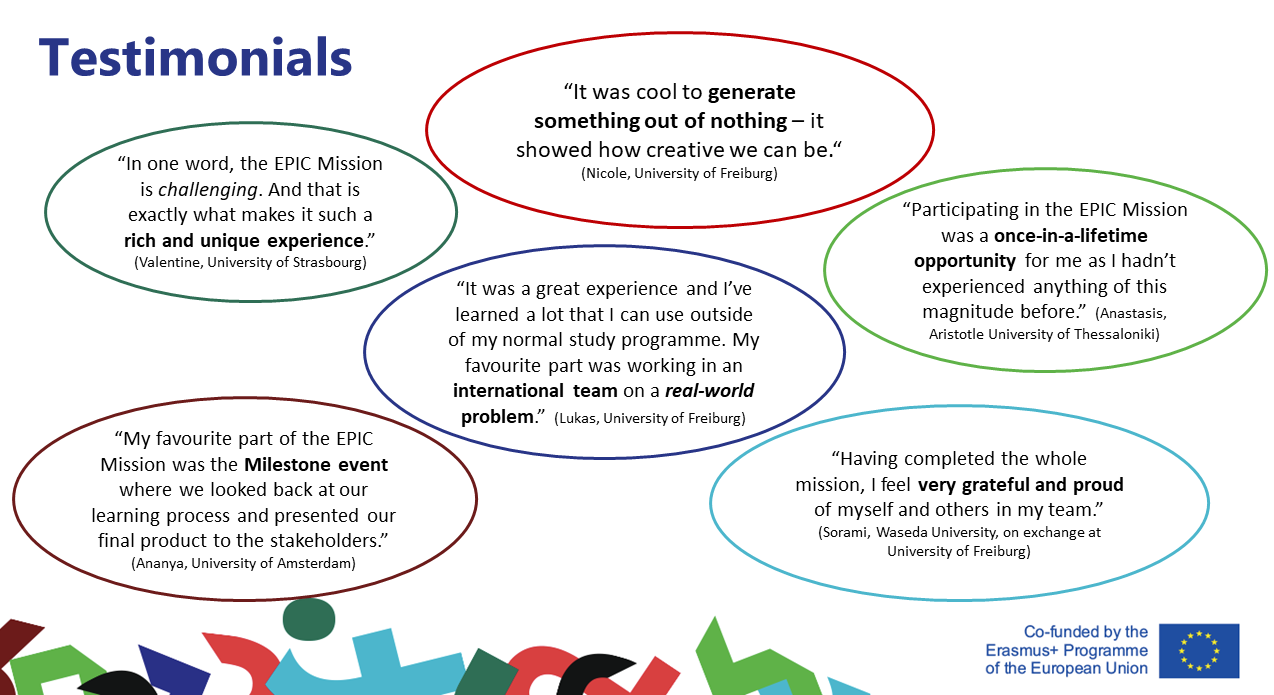
Any other questions?
If you have any questions regarding the EPIC Missions, please contact the organising team at: epicur@ucf.uni-freiburg.de
If you face any technical issues with your application, please contact the IT Support at epicur-vurs@auth.gr
If you face any technical issues with your application, please contact the IT Support at epicur-vurs@auth.gr

Notes regarding credit recognition
Please check with the EPICUR contact at your home institution to determine whether you can gain ECTS to count towards your programme of study (e.g., as an elective). If this is not possible, the course may still be taken as an extracurricular activity.